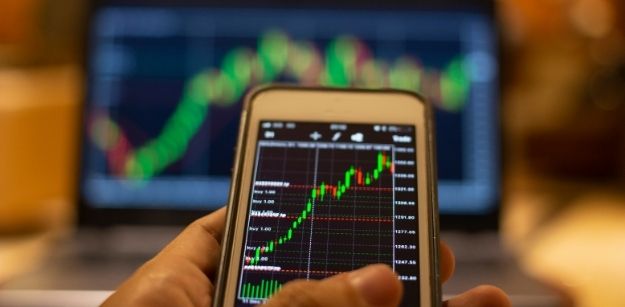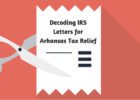You probably heard a lot of scamming schemes in the forex market, and there are some questions that might be lingering in your mind, such as” is the forex trading just a scam?” Is it a legitimate transaction? If you are going to look at the forex market, you may indeed entertain the idea that probably this is a scam for the money floating in this market is enormous. In fact, the average daily trading volume is around more or less $5 trillion. The figure may lure you into engaging in forex trade, or you may just stick to your impression that forex trade is a scam.


Despite some buzzing around in the market corners about the different scamming activities in the forex market, but forex trade itself is not a scam. It is considered a legitimate public trading. Before conducting an off-exchange forex business, an individual or an entity must first register with the Commodity Futures Commission (CFTC). This is the government entity that monitors the activities in futures and options trading.
There is a need for one to be registered in Commodity Futures Commission (CFTC), a government regulatory agency that is a clear indication that the forex market is a legit trade. In fact, those individuals and entities discovered to have employed scamming tactics have been given the necessary and appropriate legal action.
Watch this video on the latest Forex Scam available:
For more information on Forex Scams, and how to avoid them visit Forex Robot Nation.
In 1982 the National Futures Association (NFA), which is actually a self-regulatory organization, had been helping the CFTC curtail any scamming activities in the market. The joint effort of the CFTC and the NFA had helped in bringing down the figure of the scammers.
The NFA created a website that sheds light on forex trading, especially on some government regulatory measures. This website is the Background Affiliation Status Information Center (BASIC). You may like to check this website in order for you to be fully aware of the fact that the forex trade is legitimate, and there are some government regulatory measures that must be followed.
Most of the brokers in the forex trade also handles stock market trades, of which this type of trade is being monitored and regulated by the Securities and Exchange Commission (SEC) and Financial Industry Regulatory Authority (FINRA). The broker having a license and subject by SEC and FINRA will not taint his or her credibility by engaging in forex trade if it is a scam.
Why is scamming still prevalent despite government regulations?
Despite how big the potential of the forex trade but still the transaction and trading are not strictly regulated for the fact that trading and transaction can be done instantly through the counter transaction and with no accountability.
This leeway had open a fertile venue for the scamming activities to sprout. Despite the efforts of the CFTC and NFA to curtail down these scammers but the reality is that they are still there lurking to catch on their next prey.
It feeds and thrives as long as there are people who are “greedy” and into cutting the chase and want an immediate quick fortune. It may also victimize those honest to goodness investor that is naïve in the forex trade.
Warning signs
There are warning signs you need to watch out for hinting of a probable forex fraud engagement. These could be when the trading platform does not meet and operate according to your liquidity expectations. Or when your broker does not allow you to make withdrawals from your monies in the investor’s account. It could also be when problems exist in the trading platform and the issue on whether you can enter or exit the trade during the volatile market.
If those instances exist, the great probability is that you are engaging in forex fraud. You may have this type of activity relayed to the proper government regulatory agencies such as Commodity Futures Commission (CFTC) so that proper legal remedy will be meted out. In fact, there are already some individuals and entities that have been subjected to the regulatory measures by the CFTC.
Persistent Fraudulent Activities
Despite strict regulatory measures that are being implemented both by CFTC and the NFA but there are still some fraudulent activities that may already be considered persistent. One of which is the commingling of funds. Wherein there are no segregated accounts that would make it difficult for the investor to keep track as to the actual performance of the investment.
Leaving more leeway for the scrupulous broker to squander the investor’s money for his own caprices such as buying high-end cars, houses, and the like. This scenario oftentimes leads the investor to entertain the idea that forex trade is a scam, for he does not have any idea as to the actual performance of his investment and may not actually receiving the returns of his money while the broker is getting a fat bank account without the investor knowing it.
However, this persistent problem has already been seen and being remedied when the lawmakers passed the Commodity Futures Modernization Act of 2000, specifically section 4D that is geared to address the concern on fund segregation.
Investors are now being assured that the scheme of commingling of funds will no longer be seen and practice in the forex market. This may give you an idea that the forex market is a legitimate trade, and it is even being regulated and protected by the government.
If there is still some residue of scammers in the forex market, it is because of the “greediness” of some individuals who opted to transact and take the bait of the scammers in return for the prospect of getting more profit. You must remember that everything that sounds so good to be true is not an indicia of a legit trade. For legit trade entails some business risks, losses, and drawbacks that, as an investor, must be open to all of these possibilities. You must not expect that fortune will come overnight. If people’s greediness would cease to exist, chances are it will also put an end to the scamming activities in the market.



